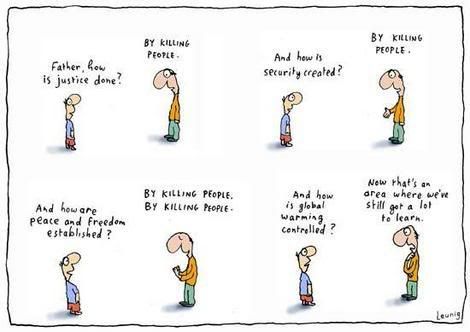Hi NSN
Thank you for your comments
You are right... iN ENGLAND anwyay i beleive this has a lot to do with the 80's and the thacther revolution where whe stated their is no such thing as society....and promoted people to be selfish.. Thus we lost the sense of community and the church rapidly lost its congregations etc....
Of course this may have been happening before espicaliiy sfrom and since the 60's with their happy go lucky libertaerianism but the 80's gave it another spurt of energy..... Unfortunately the breakdown of the chruch in england has led to an increase in single parent families, tennage yobery and underage pregnanacies to name but a few problems stemed from the breakdown of the chruch.
~~~~~~~~~~
take care
Zak
I can relate to the comments relating to Thatcher's morality (or perhaps amorality might be more accurate) but I do not think she undermined religious belief in the UK. If anything the reaction against her totally 'self based' concept which underpinned her monetarist policies probably helped the organised church.
I wouldn't bury the Church of England yet! Yes it has its problems. It always does. It needs to be remembered that the structure of the C of E is opposite to that of the Roman Catholic church. In the latter there is an overall leader (the Pope) and he and his immediate circle effectively decide what is church policy and that is then given as a directive to the followers. The Archbishop of Canterbury on the other hand is, like the Prime Minister is in politics in the UK, only primus inter pares (first amongst equals). The C of E is a wide church with policies deriving from all manner of committees (or synods as they are rather quaintly called) and its adherents are actively encouraged to think things through for themselves and debate issues. In my view this makes the Anglican church a stronger institution but it does mean it's always under tension (or rather many tensions). A classic example would be the debate on the Assisted Suicide Bill recently in the UK when the Anglican bishops mainly opposed the bill whilst the chair of the society most in favour (the Voluntary Euthanasia Society) was a charismatic Anglican church attending christian!
From the last census in the UK (2001) only around 14% declared that they had no religion and in no area did it get much above a quarter of the population. Interestingly there was no great sociological divide with some of the richest and poorest areas at both extremes and in the middle range. From the latest figures available church attendance in Angllcan churches in the UK is no longer declining and in fact the number regularly attending showed a slight increase on the previous census.
I believe that the shift towards atheism that characterised western society in the 19th. and 20th. century has now ended. I believe that this is because the ordinary people had been told by the academics and intellectuals that if they got rid of organised religion, they would be able to organise a better future by their own efforts - a 'modern' scientific humanist society would effectively be the great panacea. Organised religion was thus made out to be the great 'bogeyman', a philosophy still espoused by many current contributors to this site.
In reality of course as far as the ordinary person was concerned the new non-religious societies have turned out to be no better and in many ways worse than their 'religious' predecessors.
The debate about 'Faith Schools' is an interesting example of a change in attitude. They have not been abolished in the UK, not because of any fear from our largely atheistic politicians of religious organisations but because they are so incredibly popular, including amongst those with no religious faith whatever. The reason for their popularity is that they not only produce some of the highest academic standards but they also instill good moral values in the pupils, which sadly many of the standard state politically correct non religious schools lamentably fail to do currently.
Interestingly if your area has a church based school in the locality, the houses are likely to command higher prices than equivalent properties in nearby areas that do not - Strange but true!
Atheists have been predicting the end of religion for at least 200 or more years in the western world and this appears to me to be even less likely in the 21st. century than at any time previously.
Regards,
Gordon.


